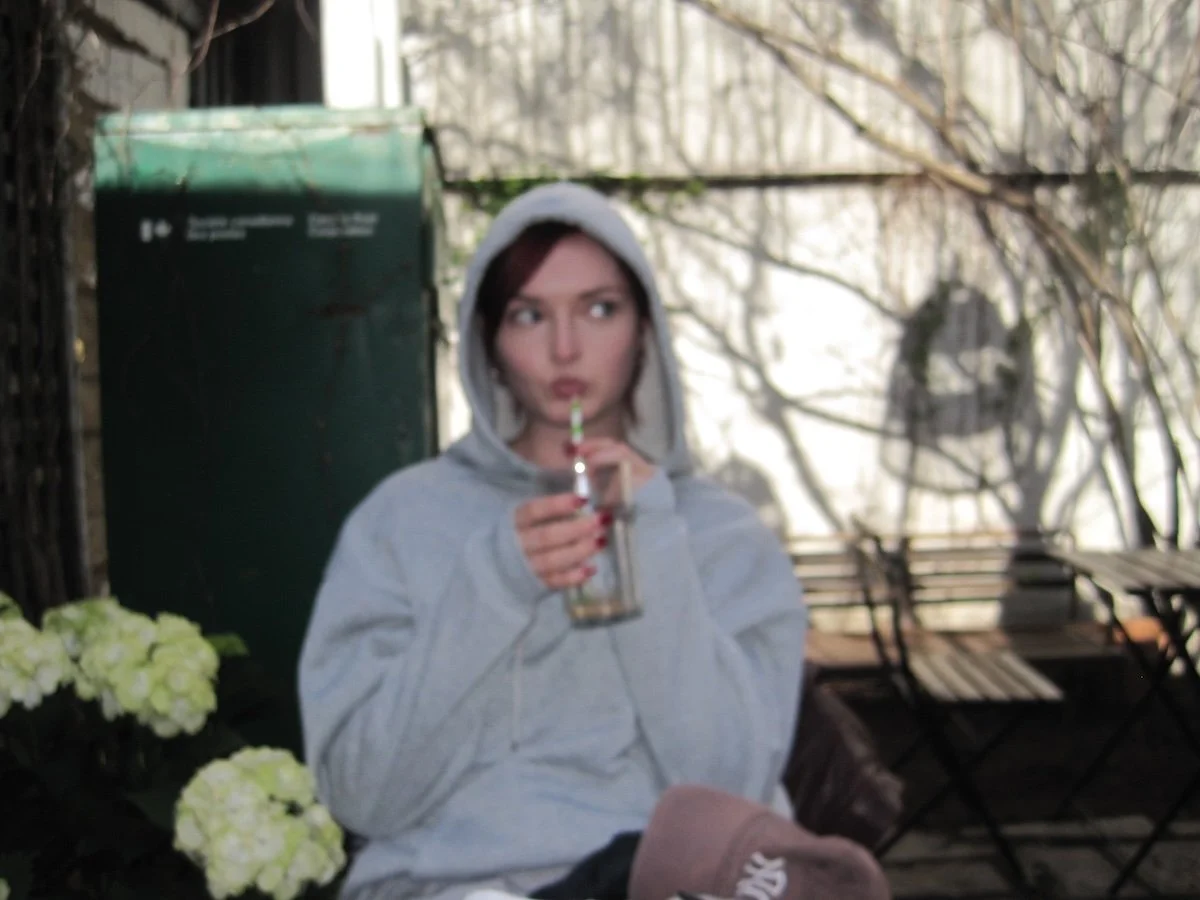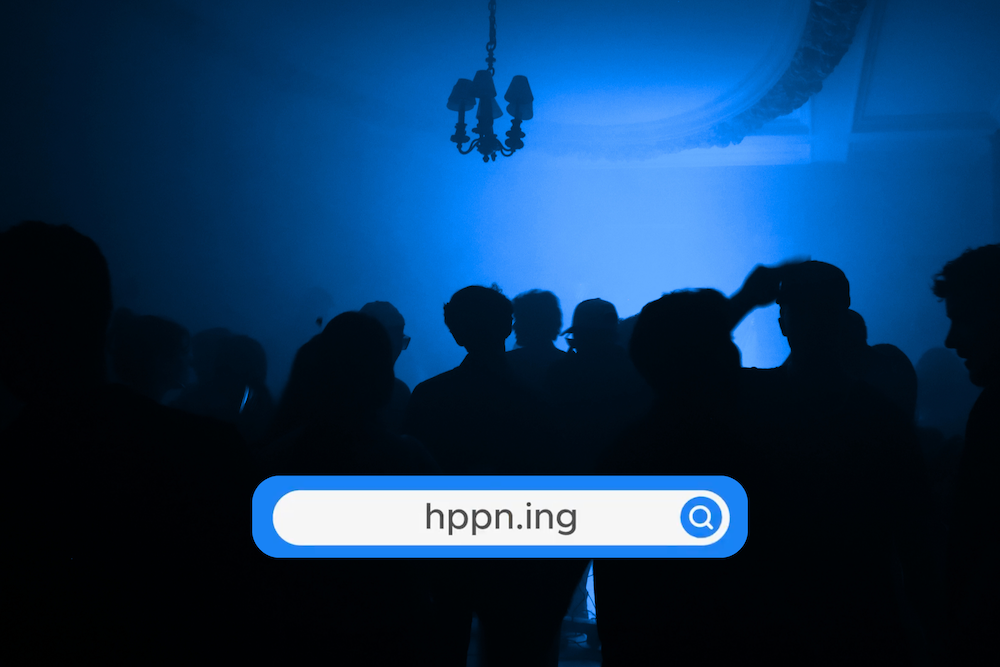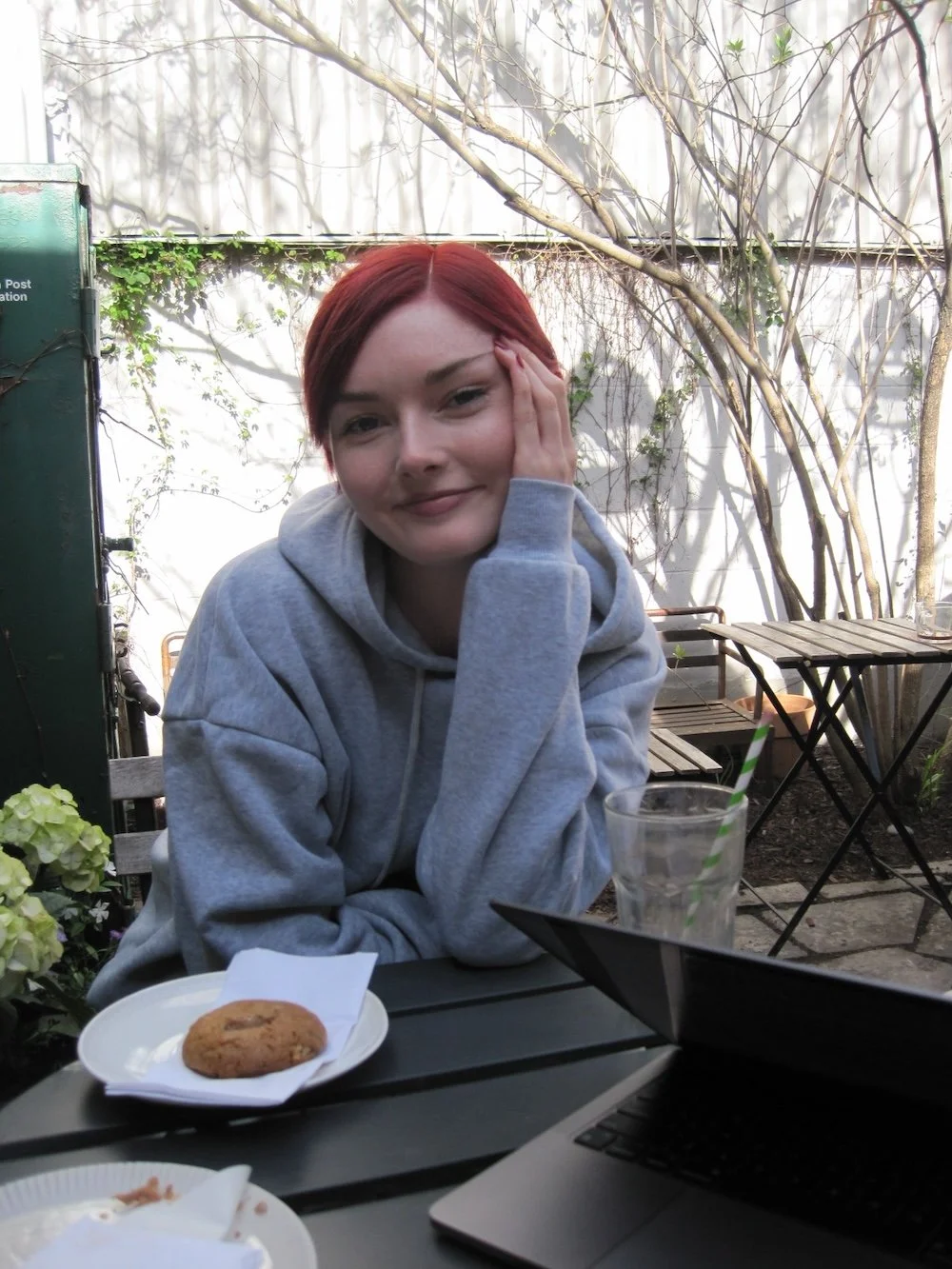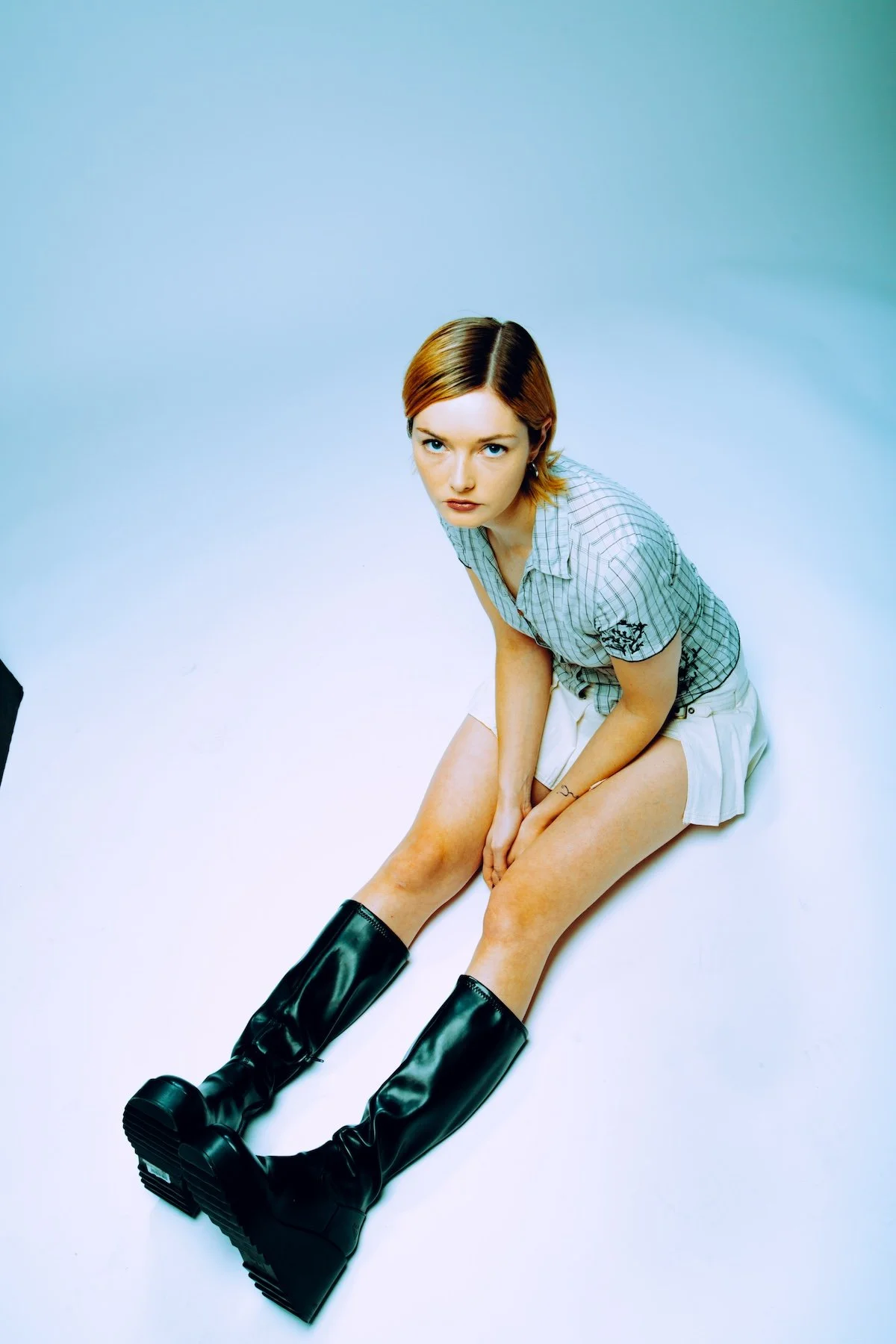Blair Lee’s Notes App Goes Crazy: We Get Into The Nitty Gritty Behind Her New EP, “LIMBO”
We sat down with the Toronto-based artist to catch up and chat all about her new EP, “Limbo”.
April 19, 2024 | Written by Sierra MadisonBlair Lee shot by Sierra Madison
The last time Blair Lee and I spoke it was right after her single ‘Hurdles’ was released. We met over coffee and wine, groaning over the pain of growing up and the grievances following COVID. It’s been almost two years since that chat, and Blair has been quite busy, but as soon as we sat down on the patio of my favourite Queen St cafe, it felt like we were picking up right where we had left off.
Bonding over heartbreak and our equally chaotic Notes app, Blair opened up about the process of writing her latest EP “Limbo”, which was released today, and what’s happened since we last talked.
Read More
Congrats on the new EP! You’ve said that ”LIMBO" encapsulates themes of being stuck in the in-between and grappling with indecision. Can you talk about the personal experiences that inspired these themes, and how they influenced the overall direction of the EP?
BL: Sure. I can think of two. I mean the major one in particular was my relationship. Which is honestly still ongoing.
SM: Yeah, I do remember the last time we chatted you had just produced your last EP with your boyfriend.
BL: Yeah, so it’s the same person who produced this one, so it’s very intertwined, but we’ve continued to work together since breaking up, and I feel like we're also creative partners as well, outside of the relationship. And at the time of making the EP, I was stuck in the midst of that. But the great thing is he never asked any questions. As far as themes go, I think the EP captures maybe the way I am with most decisions in life, or even moving forward with anything: like my career, or going outside of my apartment. I feel like I get stuck in these loops a lot of the time. But when I was like putting the EP together and listening to everything, I just noticed that in a lot of the lyrics, there’s this feeling of being stuck, questioning where am I going.
The single "Don’t Wanna Leave" reflects your desire to prolong a memorable night. You mentioned it could be interpreted as both a night out and a personal relationship. How does this duality of meaning play into the way you approach songwriting, and what do you hope listeners take from the song’s ambiguity?
BL: I mean, for me — okay, I always hate when I have to write just one quote on a song, on what it's about. Because I like people to just listen and you know, think what they want about it. But then on the other hand, I also sometimes don’t — I'm not fully aware of what I'm like writing when I'm writing it if that makes sense. With this one [Don’t Wanna Leave] I was trying to write specifically about one night, in particular, a string of nights.
It's about a phase in my life that was long-lasting, kind of still going. I was in this phase where I, again, with the relationship, didn’t really know where I wanted to go. I think part of me was trying to get out of it, and then part of me was wondering if I should be staying. I also started working at a restaurant during that time, so that was kind of what got me to start drinking more and staying out and just talking to new people. I don't know if you've experienced this, but when you're with completely new people, almost strangers, sometimes I start to spill out more secrets because it's like…
SM: It feels like the stakes aren't as high.
BL: Yeah. And I also kind of like to get a stranger's perspective on things.
Critics have positioned your work alongside iconic figures like Joni Mitchell and Bruce Cockburn, praising your ability to touch hearts with your lyrics. How do you feel about these comparisons, and in what ways do they motivate or challenge you as you develop your music?
BL: I mean, it's definitely nice to be compared to them. I also definitely feel like I'm not deserving of it, especially at the time that it was written. But it's nice to read something like that and imagine like, oh, what if something like that could happen to me? And I feel like you have to believe in yourself in that way to keep going with things. I don't know. It's always hard to have perspective on the stuff that you create, whether it's good or not.
SM: Do you have a definition for “good”?
BL: For good?
SM: Yeah, for what you consider to be “good”?
BL: Honestly, it's more of a feeling, like if I'm actually feeling something when I'm making it, especially if I cry, that's always a good thing.
SM: It's almost therapy, right?
BL: It is. Sometimes I cry when I'm making something and then I get like, oh you have no reason to cry or, how do I even put it? I don't know if you have this, but sometimes I'll get upset about something and then I tell myself, you have no right to be getting upset over this, or like…
SM: Yeah, almost that feeling of, what do you have to be so upset about type of thing? I tell myself I’m just being a crybaby. I understand that, I get like that too.
BL: Yeah, exactly.
Blair Lee shot by Eric Richards
You’ve achieved a distinctive sound that has been described as a "masterclass in extracting the hopeful from the mundane." What is your creative process like, and how do you find inspiration in everyday life to translate into your music?
BL: My creative process is very … it can be random, although what kind of ends up happening is somewhat the same. I would say at the start, especially if I'm making music with Max, it ends up being a bunch of ideas floating around. We end up grabbing them, putting them down and then it just keeps building that way. It's an abstract thing. I know of a lot of songwriters, when they start writing songs, they'll start with a title and then they'll know what they’re writing about and go from there. But for me, it's usually more — we usually start with just the instrumentals and then build the lyrics around whatever it feels like. Only a few words will come through in the beginning, a line or two, and then we build on them.
SM: Almost like Mad Libs.
BL: Yeah, it is. It's like a Mad Libs.
And then for inspiration. Sometimes there is none. But I feel like I'm at the point now that whenever something comes up in my life, or those rare moments where something happens to you and you can really feel it — for me, I try to either write down what I’m feeling while it's happening or usually right after. I try to write down at least a couple things. But then even at that time, I won't make a song out of it. It'll just be in my notes and therefore somewhere in my mind. And then I'd do that over and over again. And so when it finally comes time to make a song, those things are already kind of floating around in my head, and they just end up coming out.
SM: Your notes app probably goes crazy.
BL: Yeah, it sure does.
SM: It's like random thoughts, lyrics, grocery lists…
BL: Oh my God, I'm so bad with grocery lists. I hardly ever get groceries anymore.
SM: That's so fair.
BL: Do you take notes on your phone too?
SM: Yeah, my notes app is like … it'll be like the most heartbreaking poem ever, and then a funny thought I had, or a new word that I’ve learned, and then my grocery list … and then back to like the most heartbreaking poem I've ever written in my entire life.
BL: Yeah exactly [laughs].
SM: I've told my roommate if I die, you need to delete everything in there. Like that is the first thing to get done.
BL: No! That’s your legacy
With the songs ‘Underdog’ and ‘Grow’, that are on the EP’s tracklist, there seems to be a thematic progression or narrative arc within the EP. Could you elaborate on how these tracks connect and the story they tell together?
BL: Oh, that's going to be hard for me to answer. Sometimes I zoom out and I don't know what anything is about. ‘Underdog’ was kind of … that one was like the tail end of my last EP. It was more about holding on to, not childhood memories, but just all of a sudden realizing like, oh, I'm older now.
SM: And that was a big thing that we talked to last time, that really influenced the songs on your first EP.
BL: Yeah. And this song was written kind of around the same time [as her first EP]. Because when my grandpa died, which I told you about, I don’t know … you start thinking about a lot of stuff. I guess one of the big themes is nostalgia. ‘Grow’ is different to me because it's more, well, I guess it's reflective. So that's also a bit nostalgic. It was me kind of imagining myself being in a place where I wanted to be after everything and looking back and thinking, oh, everything had to happen as a decision for me to get here, where I am today.
SM: I think when you're growing in general you have to grapple with a lot of nostalgia and self-reflection, which is never fun.
BL: No, it's not.
SM: I wish it was more fun.
BL: Right.
SM: But … nothing changes if nothing changes.
BL: Exactly. The other thing I would say about ‘Grow’ is that it's about standing on the other side of the journey and looking and seeing like, oh, this is where I got lost and I did like a [uses her fingers to create a long winding road]. But then it all still worked out. Even though at the time I thought I was lost, which I still feel right now, but I don’t know, it all comes in cycles.
SM: I also wonder if anyone ever feels like they aren't lost, at least a little bit. And I think if they say that they don't feel like that, they're lying.
BL: Yeah.
SM: I don't think I've ever felt like … what’s the opposite? Found?
BL: Yeah [laughs] Found.
SM: Because are we not always changing? Is there not always something new to find?
BL: True. I feel like it all comes and goes and leaves. But I feel found, I guess when I have a good friendship or a relationship or am in a good scene — when I feel like I have some roots in the ground.
Reflecting on your debut with "The Puppy Game" and the evolution to "LIMBO," how do you think your music has changed or grown? What have been some of the most significant influences on your artistic development between these projects?
BL: It's interesting. Some parts of me feel like not much has changed. But maybe my confidence level has changed a bit. You know, feeling sure that I know how to make a song, which makes me feel more comfortable and happy. This EP was also made with Max, and I think both of us have kind of grown sonically and grown in our comfortability with one another, which makes it easier to step outside the box, and not be afraid to throw paint at the wall. Because that can be really hard. If I'm working with someone new, sometimes it’s really hard to come up with ideas in front of them because I’m just like… this is all shit, or like my voice is going to sound, bad or...
SM: Yeah, it helps to be comfortable with someone, and naturally over time you develop that relationship. You can almost know what the other person is going to think about things. It’s easier to bounce ideas off one another.
BL: Exactly.
SM: Yeah.
BL: And for the two of us working together, since we've worked together so much, like during our process, I’ll add something and then he'll be doing the next thing while I'm sitting writing for like an hour. It's like a nice flow.
Blair Lee shot by Eric Richards
As you continue to gain recognition and your tracks garner significant editorial support from major streaming platforms, how do you handle the pressures that come with rising fame? What goals do you set for yourself to maintain authenticity in your work as your audience grows?
BL: Honestly, I feel like nothing is happening, [laughs]. Even if I get on a playlist or anything like that, when it's happening on the internet and not in my real life, it's really hard to feel it. It's been a very slow build for me, I've never had a situation where I've gone viral and had a bunch of people follow me or had a whirlwind of getting on the Tonight Show or touring with Taylor Swift. But I imagine if something like that happened, it would probably be hard to keep my head on straight. But, the most important thing with my music is staying authentic because that's one of the most important things to me. At least I know that it's honest and I'm trying to share something real within myself and then hopefully if I'm doing that, maybe someone else could hear that and feel something. However, if things took off, I would probably just need to keep the good people around me to take care of myself.
SM: If something like that was to be able to happen, it's good to have a great support system and good friends and people in your life that are going to kind of keep you in check.
BL: Yeah, exactly. I feel like no one around me would let me be shitty, there's just no way.
SM: I can't really also see you just like making a 180 and becoming some shitty asshole [laughs]. I don't really see that happening.
BL: No, because that would just ruin everything for me. People would be like, "Never mind.” They'd like go back. They'd be like, "Okay, I guess we're going to take that thing away from her. Don't know what's going on here."








